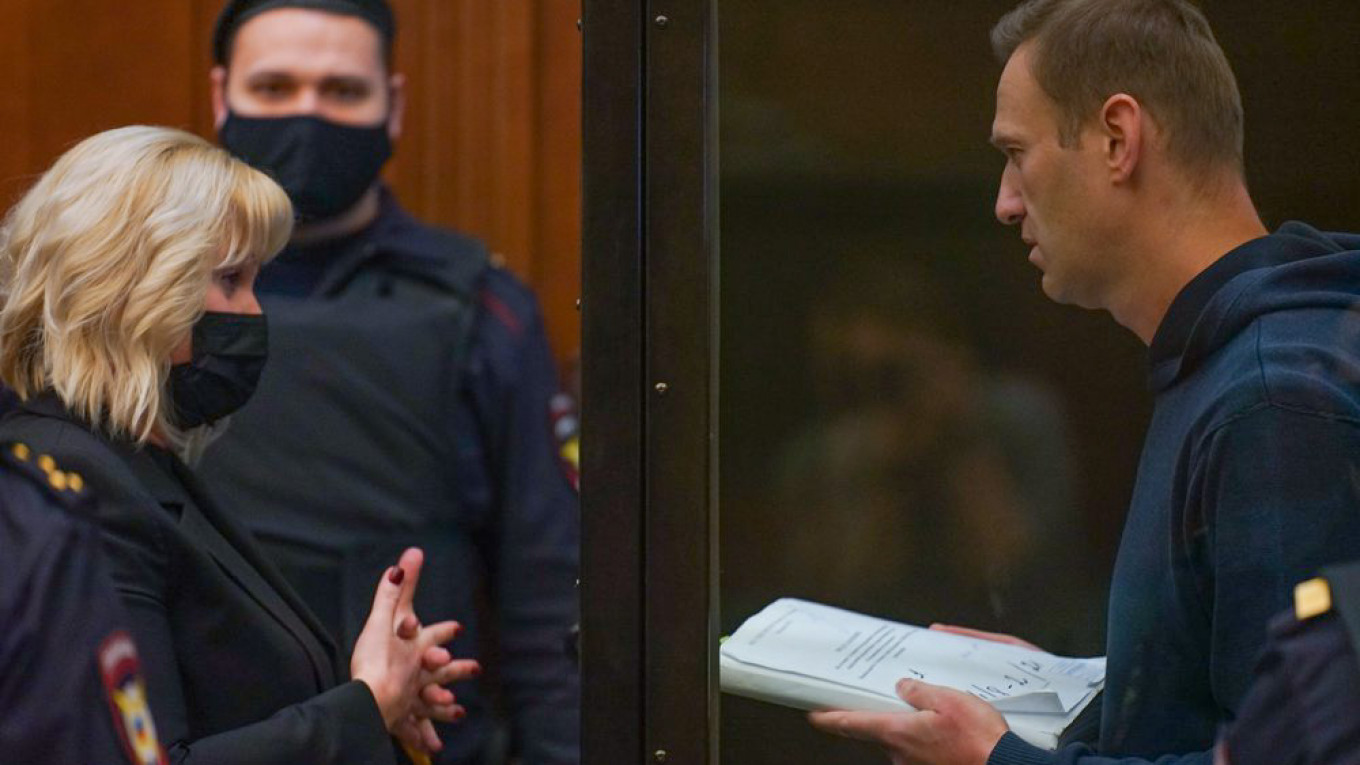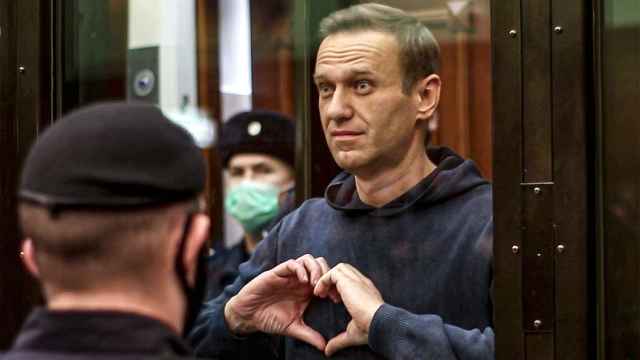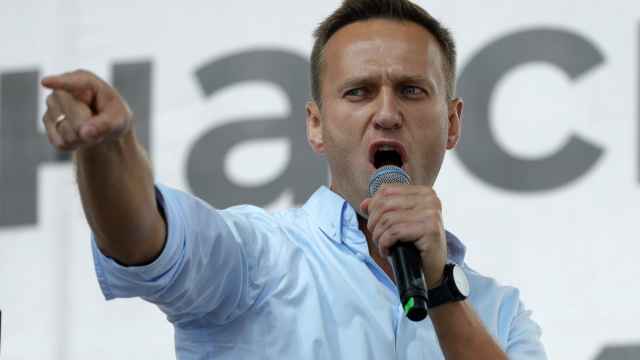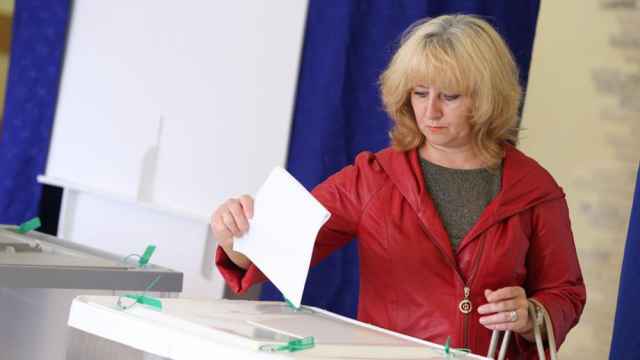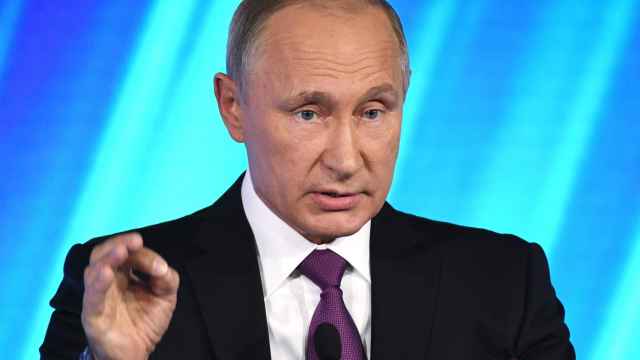Alexei Navalny’s barnstorming court speech was speaking to a variety of audiences. It sought to encourage his supporters, to inspire the uncommitted, to anger the “little man in the bunker.” It also gave some clues about how he may address another crucial constituency: Russia’s own elites.
The truth is that street protests rarely bring about political change in isolation. They delegitimize a regime, by both connecting and magnifying its critics and often pushing it into counter-productive responses. They stretch the capabilities of the security apparatus, and eventually its discipline. They challenge the unity and morale of the elite as a whole. But the actual change usually comes from self-interested elites.
To take just one example, the mass protests after the 1991 August Coup collapsed the “Extraordinary Commission” not by the direct application of people power, but because when pressed, the security forces fragmented and even Soviet Defence Minister Yazov — one of the coup leaders — backed away from trying to use force.
That’s just one example, but for an opposition avowedly determined to bring about political change peacefully — despite the snide parallels with Lenin returning to Russia in a sealed train, Navalny is no violent revolutionary — at some point mobilizing a mass base must be supplemented by winning if not the active support at least the passive acquiescence of a reasonable proportion of the elite.
Of course, Navalny already has quiet cheerleaders within the system. Economic liberals unhappy with the predatory statism in which Kremlin cronies plunder at will. Moderate patriots embarrassed at the way a drive to assert great power status is actually sliding their country toward pariah status. Champagne reformists who applaud Navalny in private but fear losing their status should their sympathies become known.
So far, though, they remain passive and silent. The question becomes, how to give them reasons to begin to make their support known?
Discontented members of the elite — who, after all, have much to lose — will begin to turn against an autocrat when he no longer delivers.
Navalny’s barb that “the only thing growing… is the number of billionaires” misses the point that even for many multi-multi-millionaires with lifestyles beyond the dreams of those ordinary Russians “without the slightest prospects, earning 20,000 rubles a month,” there is a growing sense that the status quo is no longer quite so favourable to them.
Especially since 2014 — when the onset of personal sanctions saw close Kremlin cronies recompensed for their losses, while others were expected to bear them as a price for Russian glory — the personalisation of wealth and power only seems to have grown.
From the Ulyukaev arrest to the Michael Calvey affair, the apex predators seem increasingly indulged and uncontrolled. Putin’s old strength, after all, was that he could control them and was the final arbiter of intra-elite disputes. These days he seems largely absent.
However, change can also come when the autocrat becomes embarrassing. This may sound trivial set against the hard-edged calculations of profit and power, but generals and oligarchs are human beings, too. Much of Putin’s early appeal to them was that they felt he restored a sense of pride to Russia. If they begin to consider him a source of mortification, then he can only compel obedience, not loyalty.
Navalny was speaking directly to this with his repeated invocations of the “little man in the bunker,” and labelling Putin “Vladimir the Poisoner of Underpants.” More subtle and perhaps more effective, though, was when he claimed that “everyone was convinced that [Putin’s] just a bureaucrat who was accidentally appointed to his position.”
You can, after all, genuinely encounter in conversations with figures within the economic, political, even security elites, a sense of Putin as the jumped-up B-list low-achiever, a man who got lucky when his talents at being useful to his superiors, while unremarkable to all, took him from the St Petersburg’s mayor’s office all the way to the Kremlin.
Reluctant stormtroopers
The question is, how can Navalny or his team go further? If they are able to maintain the momentum of public protest, and especially if the Kremlin continues to ratchet up the protests, then eventually this may begin to have a practical and personal impact on the security apparatus. Operations like last night’s cost in terms of police time, of other duties neglected. Furthermore, hard though it is to believe given some of the horrific scenes, most who join the police — as opposed to the National Guard — did not do so to become stormtroopers.
Nonetheless, it is hard to imagine a situation in which Russia’s security forces cannot or will not control the streets. The Kremlin has been planning for this ever since Bolotnaya, and it is worth noting that while the defence budget has essentially plateaued, Rosgvardiya’s has continued to rise.
Instead, the impact will be behind the scenes. Already for some time, Team Navalny has been quietly reaching out to those articulating the frustrations of low-level byudzhetniki, whose numbers include the police. In the future, this may be more open. A question, though, is whether and when it may also address the concerns of the more powerful and more compromised. Will there be talk of amnesties, of ‘Year Zero’ approaches that promise no retrospective prosecutions of past corruption, even of intercession with the West to lift sanctions from those willing to speak out against the Kremlin?
We are a long, long way from this. At present, the elite is united in fear of the consequences of open “disloyalty,” if nothing else. However, by articulating a narrative that makes challenging Putin not just a matter of morality, social justice and democratic ideals, but also patriotism, of refusing to “hand our country over to a bunch of corrupt officials who want to trade it for palaces, vineyards, and aqua discos,” then Navalny is beginning to build a message that goes beyond the street.
And by noting that the Kremlin’s response “isn’t a demonstration of strength — it’s a show of weakness,” he also nods toward the pragmatic side of his appeal.
Some day, after all — and the choice of this example reflects my own political experiences as British — Putin may fall not to a mob in the street, and certainly not in an election, but to the “men in grey suits” who persuaded “Iron Lady” Margaret Thatcher to step down. Her erstwhile supporters had decided she had become a liability, and she needed to be encouraged to go lest she bring them down with her.
That, after all, is the shabby reality of most regime changes.
A Message from The Moscow Times:
Dear readers,
We are facing unprecedented challenges. Russia's Prosecutor General's Office has designated The Moscow Times as an "undesirable" organization, criminalizing our work and putting our staff at risk of prosecution. This follows our earlier unjust labeling as a "foreign agent."
These actions are direct attempts to silence independent journalism in Russia. The authorities claim our work "discredits the decisions of the Russian leadership." We see things differently: we strive to provide accurate, unbiased reporting on Russia.
We, the journalists of The Moscow Times, refuse to be silenced. But to continue our work, we need your help.
Your support, no matter how small, makes a world of difference. If you can, please support us monthly starting from just $2. It's quick to set up, and every contribution makes a significant impact.
By supporting The Moscow Times, you're defending open, independent journalism in the face of repression. Thank you for standing with us.
Remind me later.



